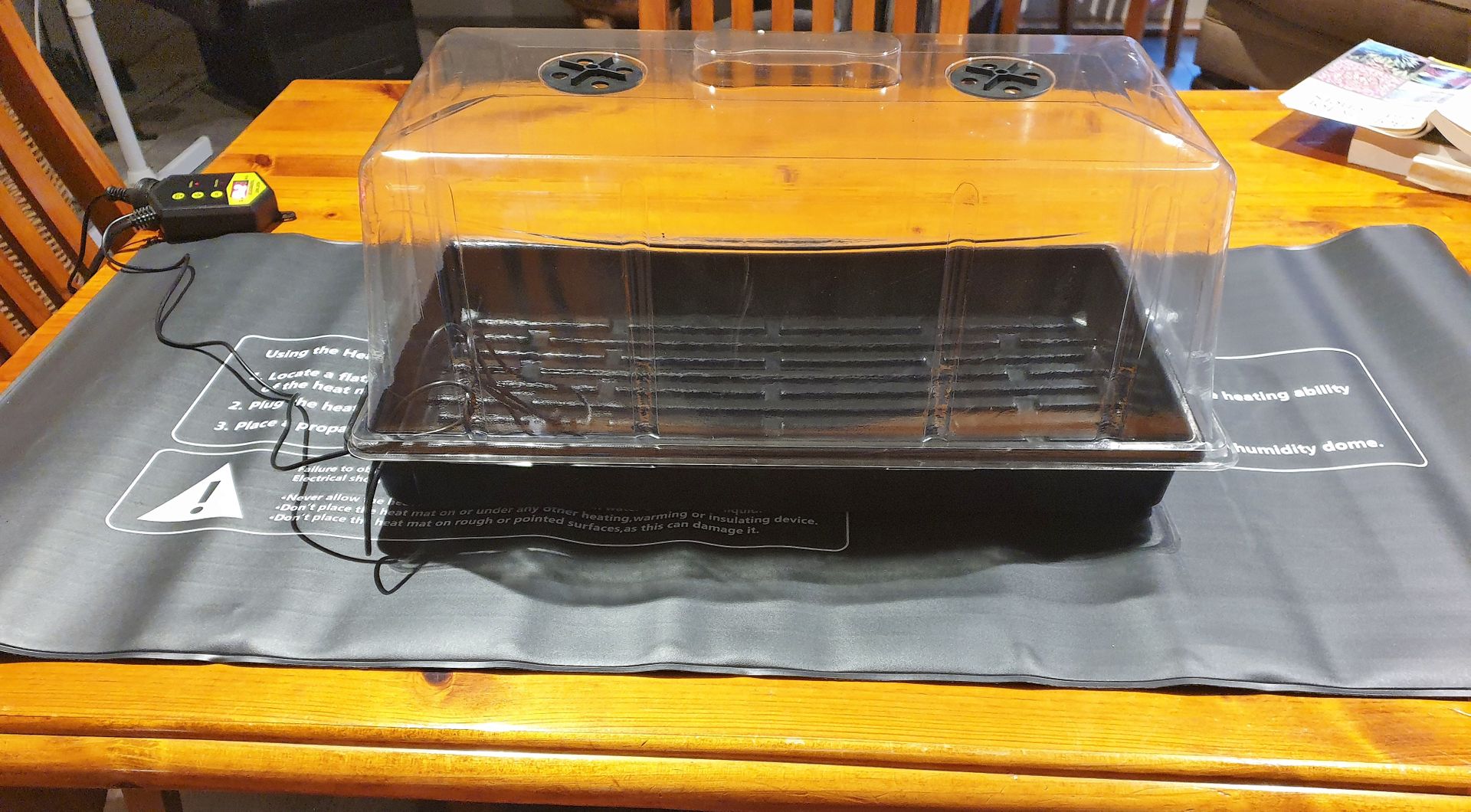Planting Seeds "Early"
July 2022
This was asked by a South African whose climate is obviously very different to that experienced by us in Canterbury. But it did make me stop and think. The short answer, is of course, we want to extend the growing season. Some plants like chilli peppers need a long time to produce ripe fruit, and because the Canterbury season can be very “variable”, we need to get the seeds started early. Maybe the long answer is about gardeners’ desires to grow when and how they want – by trying to impose their will over nature. Or maybe it is about winning the earliest tomato growing competition (which I win by growing a cherry tomato in my tunnel house – tomatoes by Christmas!).
.jpg)
Tulsi seedlings
Seeds are truly amazing – they are so well adapted to their environment – temperate plants (i.e. those growing outdoors in canterbury) need chilling, water, variable temperatures and time to germinate – sounds a bit like winter! Some seeds won’t germinate if it’s too hot (lettuce), too cold (most temperate plants), too much sun (some desert plants), not enough sun. Here’s an amazing thing – some seeds need red light to germinate. When sunlight passes through a leaf, chlorophyll captures all the red light which means that seeds that are under trees won’t germinate – just how clever is that!
Some seeds need a certain amount of light to germinate which means that they can sit in the soil for years and then if they get disturbed and get closer to the light, they germinate. This happens to me all the time when I prepare garden beds for planting – stir up the soil and then a nice big water and whammo I am suddenly growing the best crop of weeds. Actually, this is a great technique for growing organically – my compost heaps don’t normally get hot enough to kill the weed seed so I will put the compost on my garden beds, water and cover it, let the weeds grow a bit and then dig them back into the soil.
Seeds are so attuned to their environment that sometimes we have to try and trick the seeds into growing when we want them to. Seeds that need a lot of cold can be put into a damp paper towel and put in the fridge for a few weeks (called scarifying) or those that have a very hard outer shell (such as Kowhai) can be scraped to make a hole to let water in. I must admit that I have never had that much success with scarifying seeds – some seeds just want to grow when they want to grow!

Heat Pad With Small Propagator
In Canterbury, by late October/early November, the soil is beginning to warm up enough for tender seeds such as basil and tomato to start germinating outside. However, if you don’t want to wait that long then you can sow your seeds earlier, but you need to have the soil at the right temperature. A good way of doing this is to germinate seeds inside a warm place – maybe the hot water cupboard or on a sunny windowsill. My favourite way is to use a heat pad – place the container of seeds on the heat pad which will heat the soil slowly from the bottom and suddenly your seeds are beginning to germinate.
I usually start a lot of my seeds in early August on a heat pad – I do tulsi, tomatoes, peppers, basil, so that by late October I can plant them out in my tunnel house and have tomatoes by Christmas (and so win the competition!)